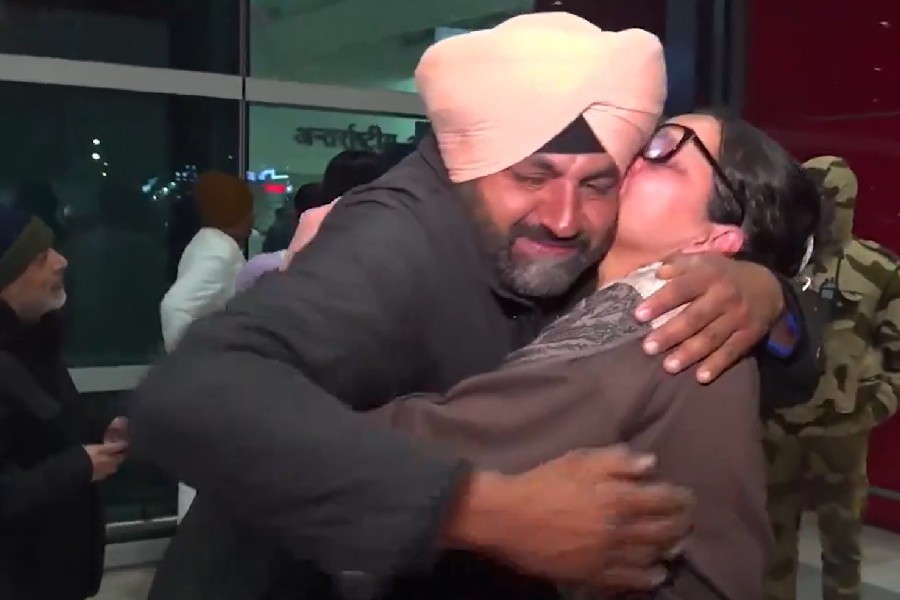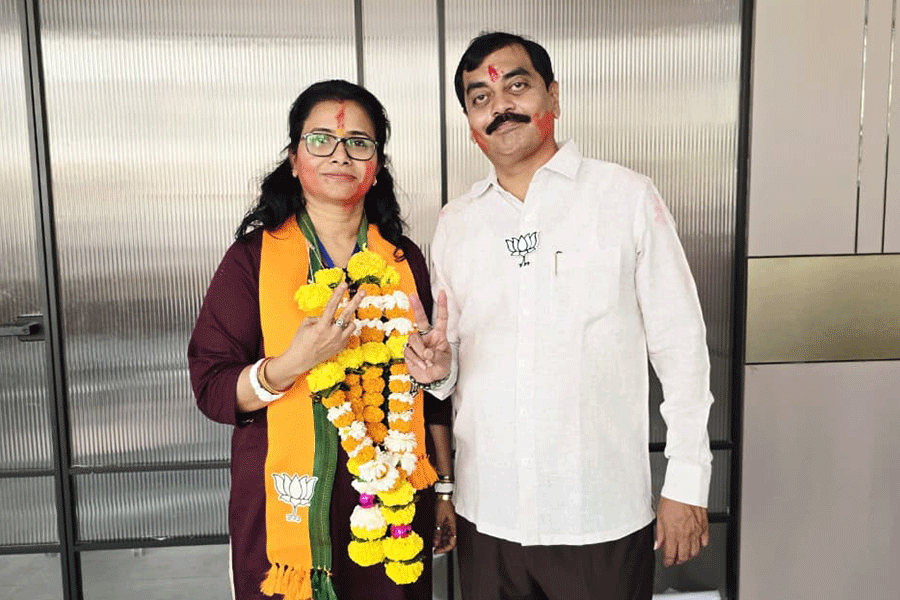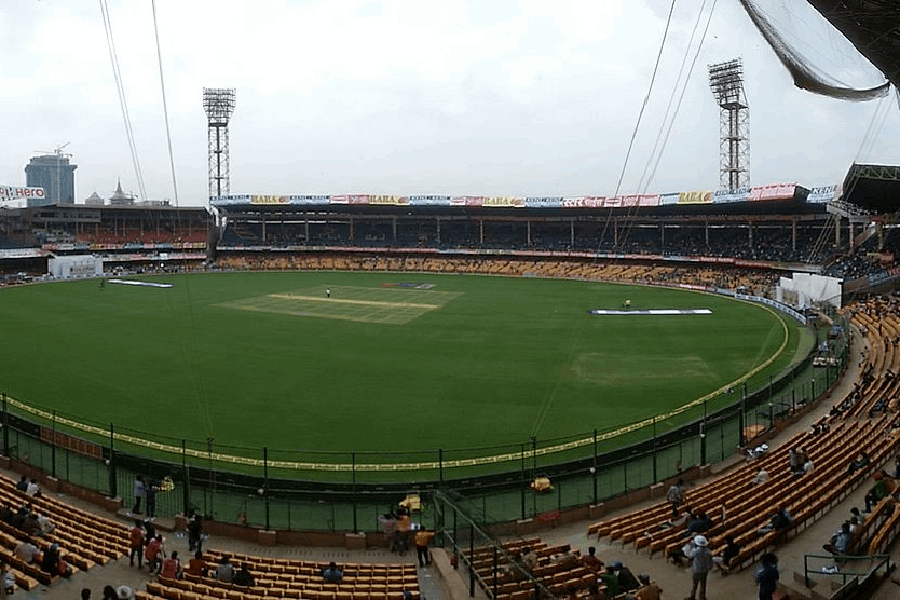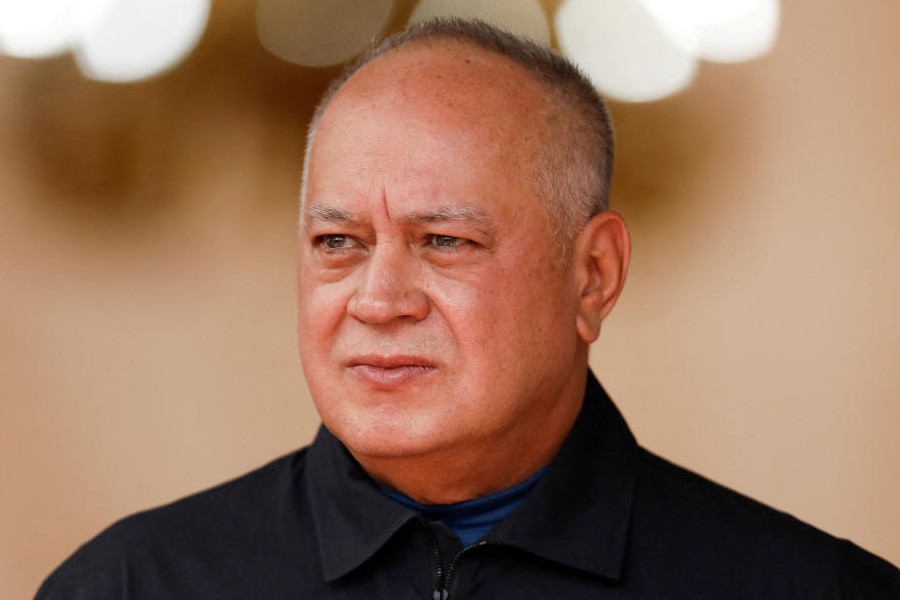.jpg)
Think adman, and you picture someone funky. Long hair. Long beard. Khadi kurta. Possibly a hangover. And, of course, radical, anti-establishment views. Piyush Pandey has a luxuriant moustache, of course, but is otherwise a bit of a surprise.
In crisp pink shirt, olive chinos and moccasins, the 60-year-old executive chairman and creative director, Ogilvy and Mather, South Asia, strides into the living room of his first floor flat in Mumbai overlooking the Arabian Sea. But before we begin, he has to complete a ritual. He bows several times in front of some 100 Ganesha idols placed inside glass cases. He next pays obeisance to a portrait of his mother - and is only then ready for the interview.
We are meeting to discuss his book, Pandeymonium, on his life in the world of advertising - released by Sachin Tendulkar and Amitabh Bachchan in Mumbai on Wednesday. For a man used to penning smart one-liners, how difficult was it to write a 244-page book?
"It was not really difficult. I have had an extremely eventful life. Whether at home or in unreserved second class compartments or while playing cricket in different parts of the country, all these small and big conversations were actually stored somewhere inside me. And they are all in the book," he replies.
Does he expect the book to ruffle some feathers?
"I have five female dogs at home; so no need to bitch in a book," he laughs. "The book has something for everyone. It's a book about advertising, about life and about India," he elaborates.
And Pandey, it must be said, has seen life. One of nine siblings - born after seven sisters, one of whom is the singer Ila Arun - he grew up in Jaipur, where his father worked for the Rajasthan State Co-operative Bank. "All my siblings and parents were inclined towards arts and culture. I was born in a creative factory," he says, and laughs heartily.
He laughs often - and a smile is always visible through his walrus moustache. Pandey shaved his moustache just once, and that was when he was 14 and sported a thin growth which a friend assured him would turn lush if he shaved it off. His mother, he recalls, was livid. You don't shave if your father is alive, she told him.
The moustache is a Piyush Pandey trademark, and he is, not surprisingly, rather proud of it. Apart from him, only two people are allowed to trim it - his younger brother, Prasoon, and his wife, Nita Joshi.
Pandey married Joshi, a former colleague at O&M, in December 2000. They were both married earlier. "I even attended her first wedding. But when we met again after a long gap, we were both single," he grins.
Joshi, who has trained in hydrotherapy for dogs in the UK, lives mostly in Goa with her dogs, travelling to Mumbai now and then, while Pandey divides his time between the two places.
Another of his loves, clearly, is cricket. At school - St. Xavier's in Jaipur - he captained both the cricket and swimming teams. A topper in history at St. Stephen's College, Delhi, he was also the captain of the Delhi University cricket team, played for Ranji and was in the under-22 team for the C.K. Nayudu Trophy.
"Once my father said to me: you play so much, will you eat bats when you have to make a living? But then he was the first one to buy a transistor radio when I played Ranji for the first time. He asked me why I hit the fourth ball when I'd already hit three fours," he says, laughing.
"I was a good cricketer but I never took it up seriously. While others were using the platform to perform and reach the next level, I thought I had already arrived. So I got stuck," he rues.
It's a lesson that's stayed with him. "I am not complacent any more. I take every achievement as the beginning of a new inning and start batting from zero to reach a new level," he says.
Despite his love for cricket, Pandey didn't think of it as his bread-earning future. Instead, he took up a job as a tea taster. It was his friend, the cricketer Arun Lal, who nudged him towards advertising. "Arun Lal said 'You come up with better one-liners than anyone else, every day, 10 times a day. Why don't you join the ad world?'," Pandey remembers.
He has been there for 33 years now. "It just goes to show how much I enjoy it," he says, lighting a cigarette ("I have to kick this habit").
Pandey, who started out as an account executive at Ogilvy in 1982, made a name with his "Chal Meri Luna" ad for a moped, and then went on to create countless such popular ads including those for Fevicol, Onida, Kelvinator and Fevikwik. And he's still remembered for a Cadbury ad - "it excited women from Goa to Unnao" - where a young woman dances to celebrate her boyfriend's century in a cricket match.
"The idea occurred after my visit to Disneyland in Orlando where I noticed how older people behaved like children at times and looked more beautiful than children in those acts. And thus the concept for the Cadbury ad was born," he remembers.
Many of the catchy slogans have emerged out of real-life stories, he says, and gives an example.
"Prasoon and I came to know from our sisters that our mother never had anything in diamond. So we gifted her diamond studs to which she said ' Is umar mein main kahan pahenungi heera' (at my age where will I wear them?)," he recalls.
Pandey used that moment in an ad for SBI Life Insurance where an elderly man gifts a pair of diamond studs to his wife. And he added the lines: " Heere ko kya pata tumhari umar kya hai" - how do the diamonds know how old you are?
But it was his campaign for the Bharatiya Janata Party (BJP) in the 2014 general election that put Pandey on a different plane altogether.
"The brief was clear. They had the best product, Modi himself. The country was looking for a leader and they wanted to lead with Modi, not the BJP. So the phrase ' Ab ki baar Modi sarkar' was fairly obvious," he says.
Pandey and his team at O&M planned the campaign along with a BJP team, co-ordinated mostly with BJP leaders Piyush Goel, Arun Jaitley and Nirmala Sitharaman.
''Modi interacted with me directly only twice during the campaign. But I am pretty sure that any progress that we made reached right at his table by midnight," he grins.
It's not the first time that he has worked with the BJP and Modi. He was also behind Gujarat's tourism campaigns. So how is Modi up close and personal? "He is extremely passionate, thorough, and was respectful to ideas I was sharing."
Ask him which one of his ads is his favourite, and pat comes the reply: "You are asking me to compare Bradman, Richards and Tendulkar."
But he feels that the greatest ad till date was his mentor and former O&M creative head, the late Suresh Mullick's " Miley Sur Mera Tumhara" - a song that spoke about unity with a galaxy of singers, sportspeople, actors and others. Pandey wrote the lyrics for the song.
His campaign against polio with Amitabh Bachchan, he believes, has been his biggest achievement so far. "Last year, India was declared polio-free. Bachchcan told me this was probably the best thing we had ever done together," he says.
He wishes, though, that he had planned a campaign for former President A.P.J. Abdul Kalam. "But I guess he did not need any advertising," he muses.
He has been speaking for a couple of hours and is getting late for a meeting. I ask Pandey if there are any other books on the anvil. The foodie hopes to write a tome on how to find an Indian restaurant across the world, even when you are travelling to Timbuktu.
"Wherever in the world I go, the first thing that I do is to find Indian food. Travelling to so many places and tasting world cuisines have reinforced my belief that Indian food is better than anything under the sun," he exults. His favourite dish, though, is dal, roti and sabzi.
I ask one last question. Pandey is said to be a popular boss who loves to take his team out for brainstorming sessions over dinner and drinks, rather than discuss ideas in boardrooms. But many in the ad world see him as arrogant and selfish and one who cannot look beyond his own body of work. How does he react to that?
"I would say thank you, I need critics," he breaks into another spell of infectious laughter.

.jpg)








